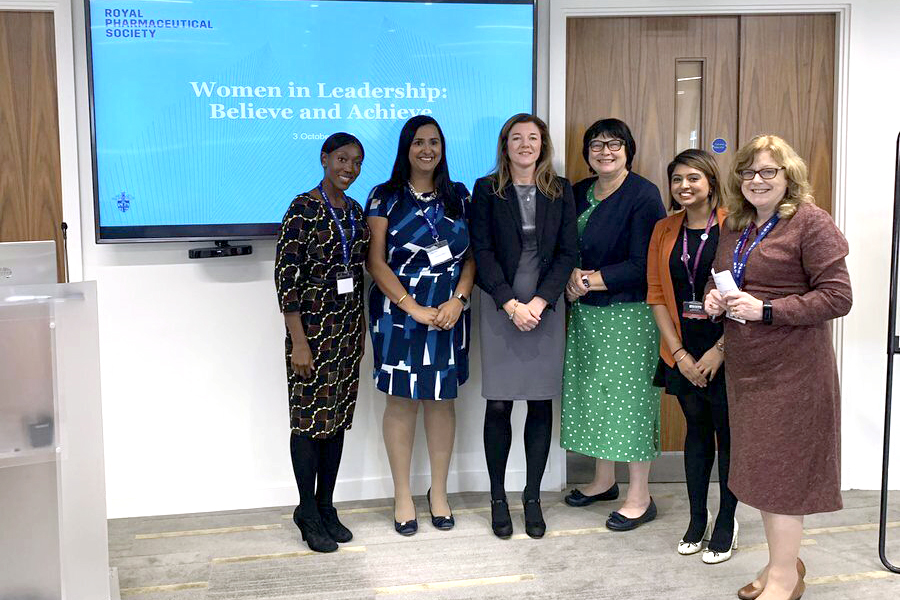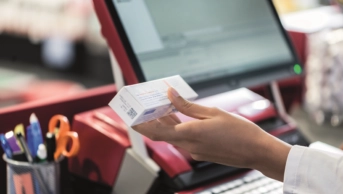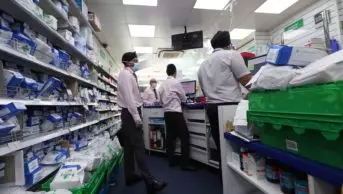
Amandeep Doll
The Royal Pharmaceutical Society (RPS) hosted its second Women in Leadership conference in London on 3 October 2019. Chaired by Amandeep Doll, regional liaison pharmacist and professional development lead at the RPS, and Sandra Gidley, president of the RPS, ‘Women in leadership: believe and achieve’ brought together people from across the sectors to share support, advice and practical workshops to help women achieve leadership roles.
Non-white female pharmacists are paid an average of £8,000 per year less than white female pharmacists, an analysis by The Pharmaceutical Journal in September 2019 uncovered. These figures on the ethnicity pay gap between white and non-white female pharmacists were presented at the event by Angela Kam, the journal’s careers editor.
Kam also shared data previously highlighted by the journal as part of its ‘Mind the Gap’ campaign, which showed an average overall pharmacy gender pay gap of 4–6% in 2018 and 2019.
While this is smaller than the UK’s gender pay gap as a whole — figures from the Office of National Statistics showed a median gender pay gap for full-time workers of 9.4% in favour of men in 2016 — Kam reminded delegates that it was important to generate discussion of the subject, while holding employers to account through increased transparency on pay and promotions.
Gareth Kitson, RPS professional development and engagement lead, gave an update at the seminar on the Society’s new inclusion and diversity strategy and told delegates that Asif Sadiq, head of inclusion, diversity and belonging for the Telegraph Media Group, had been appointed as the strategy’s external chair.
There had been an incredible response to the strategy’s initial survey, Kitson said. This will feed into a report which is due to be published in 2020.
In a session discussing the value of role models, Clare Howard, clinical lead for medicines optimisation at Wessex Academic Health Science Networks, said that early in her career, her gender had not caused her difficulties, but the gap between men and women became clearer at higher level positions where diversity of gender and ethnicity was “not reflected”.
Claire Anderson, chair of the RPS English Pharmacy Board and professor of social pharmacy at the University of Nottingham, described her PhD years at Nottingham as a “very male world” in which all senior figures were male, but highlighted Alison Blenkinsopp — recently retired professor of pharmacy practice at Bradford University — as a role model, friend and mentor who “inspired me to push myself forward”.
Another academic colleague, Martyn Davies, now emeritus professor at the University of Nottingham’s school of pharmacy, had pushed Anderson to go for promotion, prompting Anderson to note that “men can [also] be role models” for women in pharmacy.
Dev Chauhan, national medical director’s clinical fellow at NHS England, backed this up with talk of how men can be allies to women in the sector. He cited ‘Men as Allies’, a report produced by the NHS’s ‘Health and Care Women Leaders Network’, which presented some of the barriers to women’s career progression such as “club culture” — holding social events held at times inconvenient to those with childcare responsibilities — and a tendency towards “recruitment in own image”.
Frances Akor, a consultant pharmacist in anticoagulation, spoke of her mother as a role model: a woman who studied pharmacy as a mature student and a parent, competing the final year of her degree the same year that Akor was sitting her A-levels.
Akor described her mother’s “vision, focus and tenacity”, adding that she “refused to be a victim of circumstance: she chartered her own path and surmounted challenges”.
“Her enthusiasm was contagious, and is the whole reason I am a pharmacist today”.
The RPS launched its pharmacy inclusion and diversity programme in August 2019. Find out more about what the society is doing for members here.
You may also be interested in

RPS meets with government to discuss pharmacists amending prescriptions during medicines shortages

A third of pharmacists report COVID-19 significantly impacted their mental health and wellbeing
